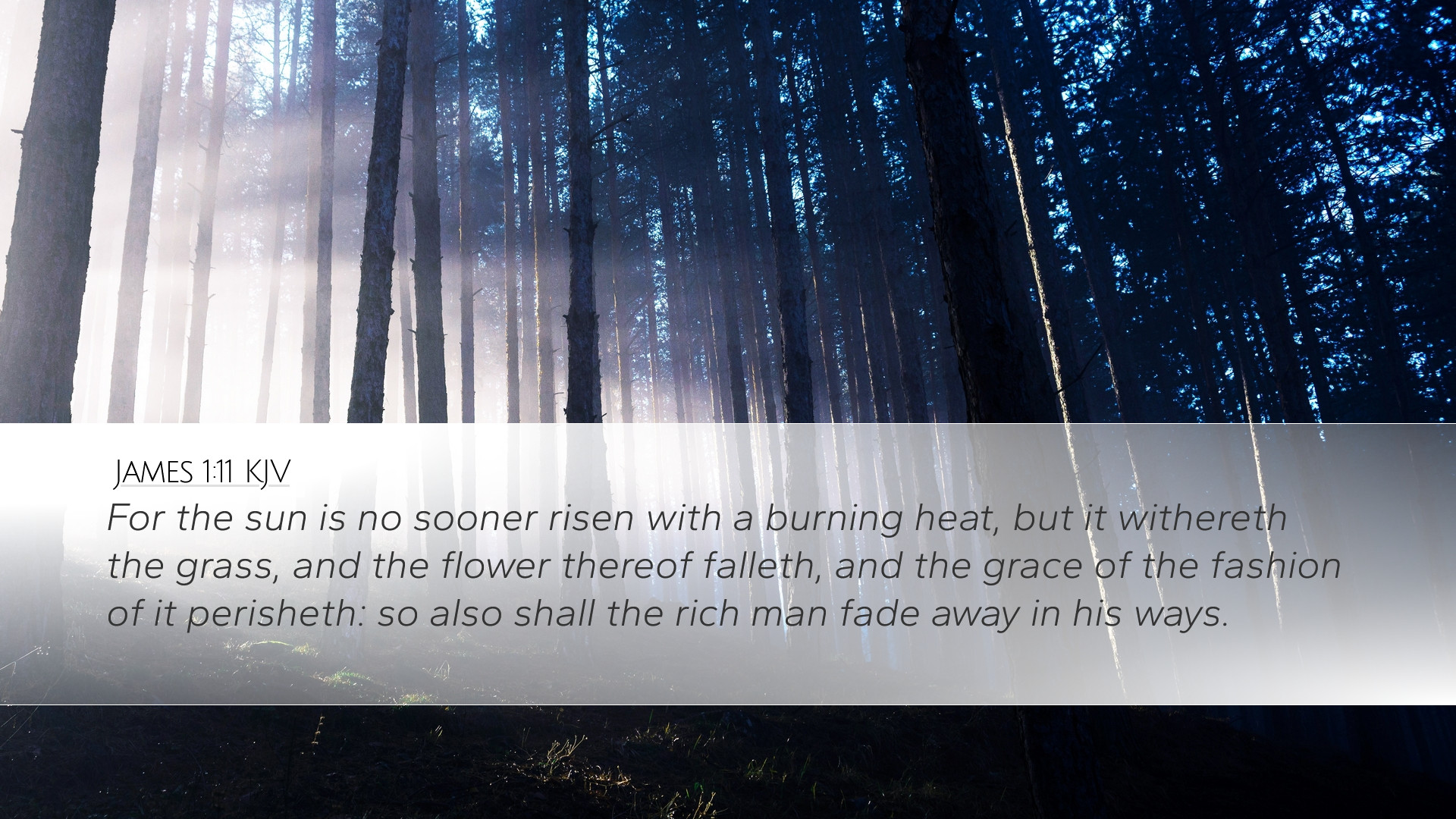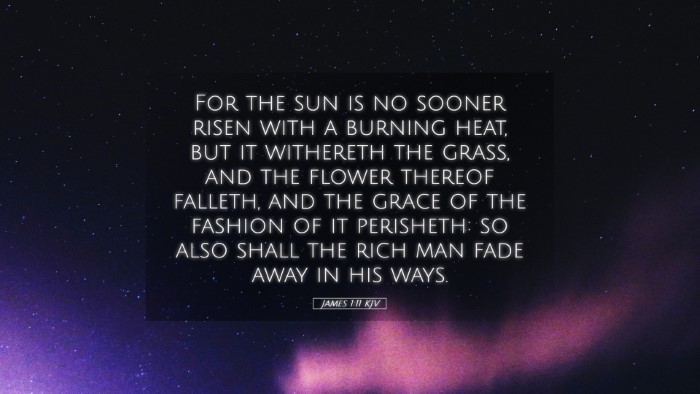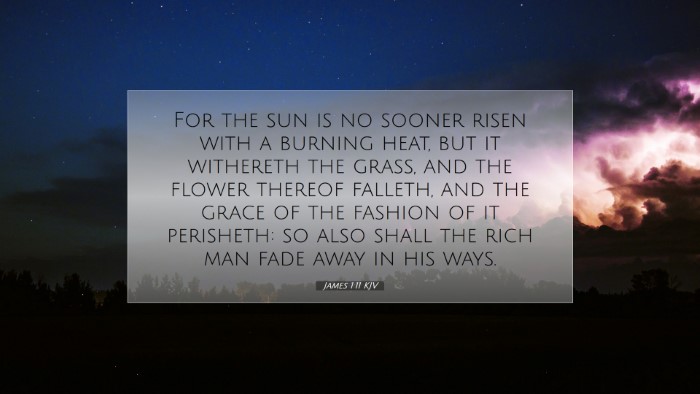Old Testament
Genesis Exodus Leviticus Numbers Deuteronomy Joshua Judges Ruth 1 Samuel 2 Samuel 1 Kings 2 Kings 1 Chronicles 2 Chronicles Ezra Nehemiah Esther Job Psalms Proverbs Ecclesiastes Song of Solomon Isaiah Jeremiah Lamentations Ezekiel Daniel Hosea Joel Amos Obadiah Jonah Micah Nahum Habakkuk Zephaniah Haggai Zechariah MalachiJames 1:11
James 1:11 KJV
For the sun is no sooner risen with a burning heat, but it withereth the grass, and the flower thereof falleth, and the grace of the fashion of it perisheth: so also shall the rich man fade away in his ways.
James 1:11 Bible Commentary
Commentary on James 1:11
James 1:11 states: "For the sun rises with its scorching heat and withers the grass; its flowers fall, and its beauty perishes. So also will the rich man fade away in the midst of his pursuits."
Introduction
This verse is a poignant reflection on the ephemeral nature of wealth and the inherent frailty of human life. As part of a larger discourse on trials and the Christian aversion to a worldly mindset, this verse serves as a sobering reminder to readers—especially those in positions of wealth and influence—of the transitory nature of material possessions.
Analysis of Key Themes
- The Nature of Wealth: Several commentaries highlight that James uses the analogy of grass and flowers to illustrate the fleeting glory of wealth. Matthew Henry notes that just as the beauty of natural life is short-lived, so too is the splendor of riches.
- The Fragility of Life: Adam Clarke remarks on the inevitability of decay associated with life and material possessions. This serves to remind believers of the transient nature of their earthly journey.
- Spiritual Perspective: Albert Barnes emphasizes that James seeks to redirect focus from worldly pursuits and encourage believers to invest in spiritual treasures that endure beyond the temporal realm.
Exegesis and Insights from Commentaries
The verse operates under the metaphor of natural phenomena—the sun, grass, and flowers—to depict the reality of wealth and its inevitable decline. James begins with the image of the sun's scorching heat, which brings both life and destruction. The heat can rapidly wither grass, illustrating how quickly wealth can fade amidst life's trials.
Matthew Henry notes that the grass is a symbol of the abundance that wealth can produce, with flowers representing the outward beauty that accompanies it. However, this beauty is short-lived; highlighting how the rich, engaged in their pursuits, may find themselves unprepared for the reality of their fleeting circumstances.
Albert Barnes explains the idea that worldly pursuits, when prioritized above spiritual ends, ultimately lead to a sense of emptiness and disillusionment. He cautions that while wealth may afford temporary comforts, it does not bring lasting fulfillment.
Practical Applications
- Embrace Humility: Believers are encouraged to recognize the limitations of wealth and to maintain a humble attitude towards both gain and loss.
- Focus on Eternity: Followers of Christ are reminded to invest in eternal treasures—acts of kindness, spiritual growth, and community service—that align with God’s kingdom.
- Prepare for Trials: The imagery of decay prompts a readiness for life's challenges, understanding that trials can strip away worldly reliance and lead to spiritual maturity.
Theological Reflections
From a theological standpoint, this verse evokes reflections on the doctrines of creation and decay, emphasizing God's sovereignty over both. Adam Clarke articulates that God's providence governs the ebb and flow of riches, guiding believers to an understanding of their role as stewards rather than owners.
This understanding fosters a culture of gratitude and encourages a life of service, recognizing that all resources ultimately belong to God. The transitory nature of goods calls for a life lived in generosity, with awareness that earthly ties cannot secure earthly possessions against the inevitability of decay.
Conclusion
In conclusion, James 1:11 serves as a powerful reminder to believers of the fleeting nature of wealth and the importance of prioritizing eternal values over temporary gains. Engaging with insights from Matthew Henry, Albert Barnes, and Adam Clarke, this verse gathers a rich interpretation that informs a robust Christian worldview. It challenges pastors, students, and theologians alike to reflect deeply on how they value material possessions and encourages a community-oriented, humble, and God-focused lifestyle.


